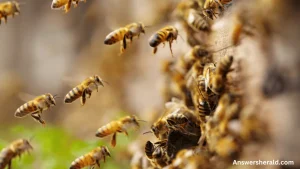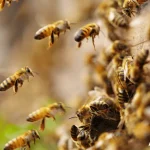In the vast expanse of human physiology, every twitch, shiver, and tremble can be a gateway to profound revelations. Among these, nose twitching—a seemingly mundane occurrence often attributed to a simple reflex, muscle spasm, or nerve stimulation—holds a treasure trove of meanings that transcend the purely physical.
This exploration ventures beyond the surface to delve into the less-discussed realm of spiritual and esoteric interpretations of nose twitching.
It proposes an intriguing premise: physical sensations, however trivial they may seem, can sometimes serve as vessels for more profound significance, beckoning us to look beyond the material into the spiritual essence of our existence.
Contents
- 1 Nose Twitching in Different Cultural and Spiritual Traditions
- 2 The Nose as a Spiritual Receptor
- 3 Types of Nose Twitches and Potential Meanings
- 4 Developing Your Intuitive Connection
- 5 A Note of Caution
- 6 Conclusion
- 7 FAQs
- 7.1 1. What does nose twitching signify in a spiritual context?
- 7.2 2. How do different cultures interpret nose twitching?
- 7.3 3. Can nose twitching be related to the third eye or intuition?
- 7.4 4. Is there a difference in meaning between left-side and right-side nose twitches?
- 7.5 5. What should I do if I experience frequent nose twitching?
Nose Twitching in Different Cultural and Spiritual Traditions
The practice of interpreting bodily signs like nose twitching spans across various cultures and spiritual traditions, each offering a unique lens through which to understand these phenomena.
From the energy-centric views of Ayurveda and traditional Chinese medicine to the symbolic readings found in ancient societies and modern-day spirituality, the world has long recognized that there is more to these involuntary actions than meets the eye.
By exploring these diverse perspectives, we understand how different cultures have sought to understand the messages conveyed through the body, specifically through nose twitching.
Eastern Traditions
The Eastern philosophical and medicinal systems, such as Ayurveda and traditional Chinese medicine, provide a rich tapestry of interpretations for bodily signs, including nose twitching. These practices often view the human body as a complex network of energy channels.
According to them, a twitch in the nose could indicate an imbalance or a blockage in these channels, particularly those related to prana or chi, the life force.
It might also be tied to specific elements (fire, water, earth, air, and ether) and their dominance or lack thereof in the individual’s constitution.
Ancient Practices
Delving into the annals of history, the ancient civilizations of Egypt, Greece, and various indigenous cultures harbored unique beliefs about the body’s signals.
The nose, often revered for its function and symbolic significance, was seen as a portal to higher wisdom or a receiver of divine messages.
These societies had their lexicons of bodily symbolism, where a twitching nose could have foretold auspicious or ominous events, reflecting the universe’s intricate language.
Modern-day Spirituality
In the realm of New Age spirituality, nose twitching takes on new dimensions, linking it to psychic abilities, spiritual communication, or intuitive guidance.
This perspective sees the body as a finely tuned instrument of the soul, with every twitch being a potential message from the higher self or the spiritual realm. It urges us to pay attention to our inner voice and the synchronicities around us.
Also read: Spiritual Meaning of a Blue Rose Explained

The Nose as a Spiritual Receptor
The nose, primarily recognized for its role in the sense of smell, holds a deeper connection to our intuitive and emotional realms. This connection suggests that beyond its physical functions, the nose can act as a receptor for spiritual and subtle energies.
By examining the relationship between the nose, smell, and our subtler senses, we uncover how this organ may serve as a bridge to more profound knowing, intuition, and the unseen forces influencing our lives.
Thenose’s proximity to the third eye chakra further enriches its potential as a conduit for spiritual awareness and inner vision.
Sense of Smell
The sense of smell, closely associated with the nose, is profoundly linked to memory and emotion, more so than any other sense. This connection suggests that the nose acts as a physical receptor and a gateway to intuitive knowing and emotional depth, tapping into the subconscious and the memories it holds.
‘Sixth Sense’
Many cultural and spiritual traditions posit the existence of a ‘sixth sense’—a subtle ability to perceive beyond the physical senses. With its acute sensitivity, the nose could serve as a physical symbol and actual receptor for this elusive sense, detecting changes not just in the environment but in the energetic landscape we navigate daily.
The Third Eye Connection
The area between the brows, home to the Ajna chakra or the third eye, is a center of inner vision and awareness. The nose’s proximity to this area is significant; twitches here might signal an awakening or activation of this chakra, hinting at burgeoning spiritual sight and insight.
Also read: Why Do Bees Follow Me? Spiritual Meaning!
Types of Nose Twitches and Potential Meanings
Nose twitches vary in intensity, frequency, and location, suggesting that not all cramps are equal. By distinguishing between the characteristics of these cramps, we can gain a more nuanced understanding of their potential meanings.
Whether indicating a call to action or a moment for reflection, the nature of the twitch provides clues to its significance.
As we learn to interpret these signs, we appreciate the personalized messages and guidance they may offer, encouraging a deeper dialogue with our intuition and spiritual awareness.
Right Side vs. Left Side
Exploring the lateralization of nose twitches reveals a fascinating dichotomy: the right side is often associated with masculinity, action, and external engagement, while the left correlates with femininity, receptivity, and internal reflection. This distinction can offer nuanced insights into the nature of the messages conveyed.
Intensity and Frequency
The strength and frequency of nose twitches can also bear meaning. Intense or frequent twitches might signal urgent or significant messages, demanding immediate attention, while more subtle movements might suggest gentle nudges toward awareness or change.
Individual Interpretation
While cultural and spiritual traditions provide frameworks for understanding, the personal context of a nose twitch is paramount. Individuals are encouraged to observe their circumstances, feelings, and thoughts at the moment, constructing their interpretations and meanings based on intuition and personal relevance.
Developing Your Intuitive Connection
Cultivating a relationship with our intuition allows us to navigate the messages behind nose twitches with greater clarity and understanding.
Mindfulness, journaling, and meditation can enhance receptivity to these messages, transforming seemingly random twitches into meaningful insights.
By developing this intuitive connection, we not only decipher the language of our body but also deepen our engagement with the spiritual dimensions of our existence, opening ourselves to a more prosperous, more interconnected way of living.
Mindfulness
Being present and mindful when experiencing a nose twitch can unlock insights into its significance. Observing the surrounding situation, emotional state, and concurrent thoughts can illuminate the message’s context and relevance.
Journaling
Documenting nose twitches and detailed context can help discern patterns over time, offering personalized interpretations and a deeper understanding of this phenomenon’s role in one’s spiritual journey.
Meditation
Meditative practices that quiet the mind and foster inner silence enhance the ability to receive and comprehend intuitive messages. This state of receptivity can clarify the spiritual implications of nose twitches, among other subtle signals.
A Note of Caution
It is vital to acknowledge and rule out medical explanations for nose twitching, especially if it is persistent. While this exploration focuses on spiritual interpretations, it is not a substitute for professional medical advice.
Not every physical sensation is imbued with profound spiritual meaning. Applying critical thinking alongside intuition is essential to discern the messages worth heeding from mere physiological occurrences.
Conclusion
This journey into the spiritual landscape of nose twitching uncovers many meanings and interpretations rooted in various cultural, historical, and spiritual traditions.
It invites readers to embrace the possibility that their bodies are more than mere vessels of biological function—they are intricately connected to the spiritual realm, capable of conveying messages beyond the grasp of our physical senses.
As we cultivate an open and curious mindset towards these signals, we embark on deeper self-awareness, intuition, and connection to the universe’s mysteries.
Developing a nuanced understanding of personal symbolism, such as the twitch of a nose, takes time, patience, and practice. Still, it is a journey well worth embarking on for those seeking to deepen their spiritual connection and understanding of themselves.
FAQs
1. What does nose twitching signify in a spiritual context?
In various spiritual and cultural traditions, nose twitching can be viewed as a sign or message. It may indicate an energetic imbalance, a prompt for introspection, a sign of forthcoming change, or an intuitive nudge toward a specific direction. The interpretation depends on the cultural context, the side of the nose affected, and the individual’s personal experiences and beliefs.
2. How do different cultures interpret nose twitching?
Different cultures offer diverse interpretations of nose twitching. Eastern traditions like Ayurveda and traditional Chinese medicine may be seen as related to energy channels and elemental imbalances. Ancient societies might have viewed it as an omen or divine message. Modern spirituality often connects it to psychic abilities or intuitive guidance.
Yes, in many spiritual beliefs, the area around the nose, especially near the third eye chakra between the eyebrows, is considered significant for inner vision and intuition. Twitching in this area might be interpreted as an activation or awakening of the third eye, suggesting heightened awareness or spiritual insight.
4. Is there a difference in meaning between left-side and right-side nose twitches?
Yes, traditionally, the side of the nose that twitches can carry different meanings. The right side might be associated with more masculine energy, action, and external changes, while the left could relate to feminine energy, receptivity, and internal reflection. However, interpretations can vary, and personal context is crucial.
5. What should I do if I experience frequent nose twitching?
While exploring spiritual meanings, it’s important to consider physical health. A medical professional should first evaluate frequent nose twitching to rule out underlying conditions. Simultaneously, you might reflect on any potential spiritual or emotional messages, mainly if no physical cause is found.








